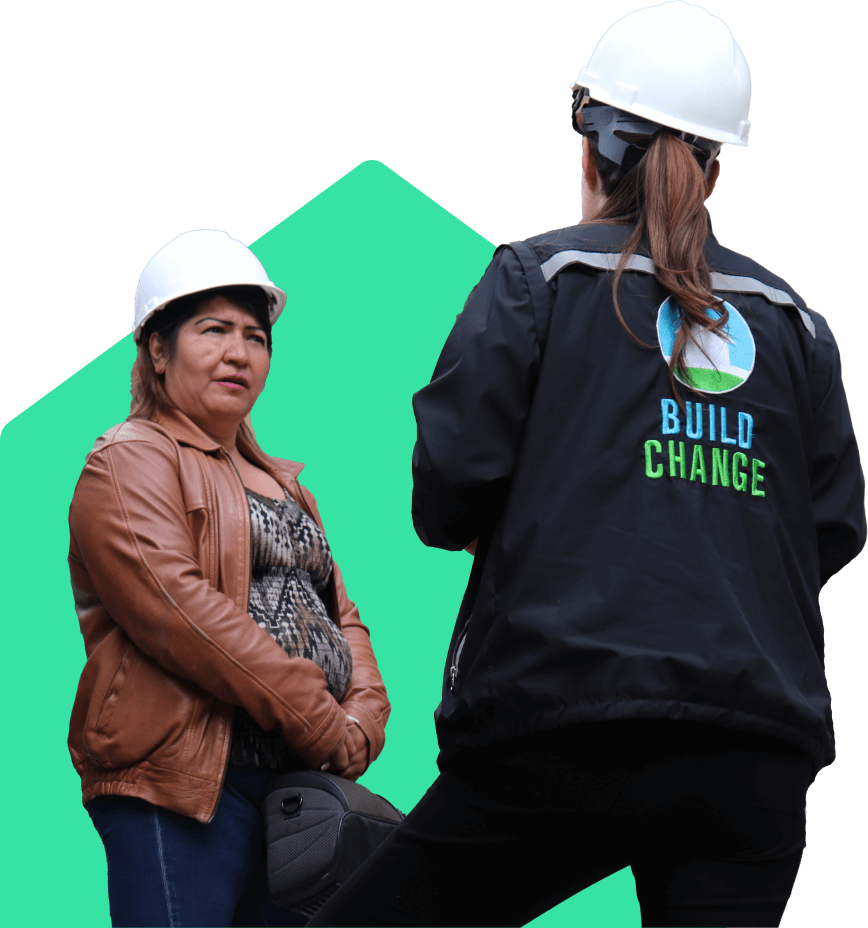
Worldwide Impact

We Transform Housing Systems Worldwide
Build Change is the global expert on disaster-resilient housing. We have developed building standards and influenced policies and programs across the world. Our efforts have led to safer people worldwide, protected housing infrastructure, trained workforces in resilient housing techniques, created jobs, and transformed local organizational capacity. Our approaches to building resilience reduce carbon emissions and new land development. We have surpassed global averages in women’s leadership since the start and promote gender equity by supporting women in reducing their vulnerability to disasters, protecting their assets and home-based workplaces, and leading the march toward resilient housing for all. From the first 11 homes built following the 2004 earthquake and tsunami in Indonesia, to the more than 230,000 safer buildings reached in 2023, we invite you to explore our impacts below.
Data is current as of March 31, 2025.
Our Indicators:
Measuring & Reporting Impact
Underlying our work is the desire to have a positive and lasting impact by changing housing systems. To do this, we promote a program model that is both economically and socially sustainable. The Build Change model for resilient housing centers on the following:
Safety, Resilience & Health
Gender Equity
Environmental & Sustainability
Economic Prosperity
Systems Change
Knowledge Dissemination
Support resilient housing worldwide
Newsletter
Sign up for our newsletter to receive updates on our latest news, events, and more.